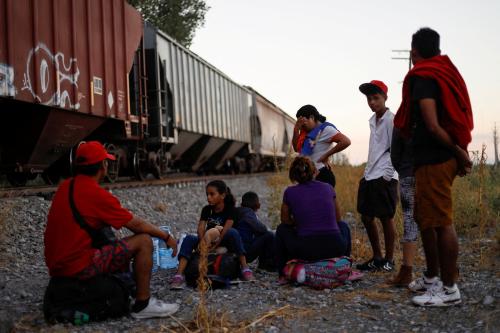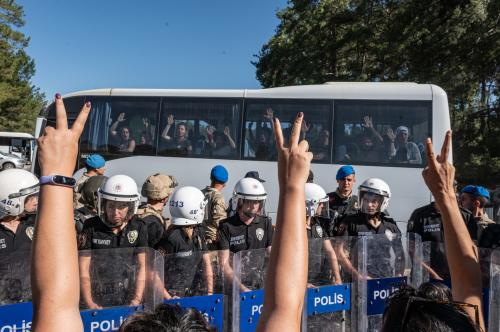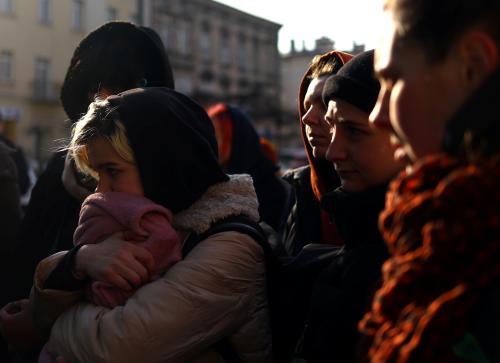Meeting co-sponsored by:
The Christian Children’s Fund
The International Rescue Committee
Women’s Commission for Refugee Women and Children
Held parallel to the 51st Session of the Commission on the Status of Women
This meeting is an important reminder that the United Nations Commission on the Status of Women, which is meeting across the street, should give special attention to the plight of the tens of millions of refugee and internally displaced women in more than 100 countries. Most have been uprooted by war, communal violence and human rights abuse and can be found in the most destitute conditions, vulnerable to abuse, and subject to the worst discrimination and marginalization that you will ever see. Although some displaced women quite remarkably show themselves to be resourceful, vibrant and receptive to new opportunities, many others are forced to live in camps and emergency shelters for decades, face discrimination in access to relief, receive limited health care, are subject to sexual exploitation, trafficking and violence, benefit in only small numbers from education and training, and have little or no possibility of participating in meaningful income-generating and employment opportunities. Being separated from their homes and communities, many have to rely on the international community for support. Refugee and internally displaced women and children constitute more than 70 percent of the world’s more than 40 million refugees and internally displaced persons. Most can be found in developing countries that do not have the capacity and sometimes the will to meet the needs of the displaced.
Sometimes people ask why refugee and internally displaced women should be given special attention when there are billions of women in the world in difficult circumstances. The answer is that forced displacement is a prima facie case of trauma and vulnerability. Take a moment and picture what it would be like for you if you had to flee from your home because of an imminent threat, or because you were being forced out at gunpoint on ethnic, political, religious, racial grounds, or because you got caught in the middle of a civil war or a natural disaster. You couldn’t take many of your belongings with you; you probably would become separated, at least temporarily, from your husband, partner, children, whoever is close to you. You would no longer be able to go to your work or be connected to your neighborhood or community. In fact, the pillars that make up your life – and each one of you know what those pillars are — would be gone, pretty much in a flash. Nor would you probably have with you the basic documents that could establish your identity. What would you feel? Anyone in this room who has ever felt desperate or dependent on someone else for help, even for a day, will understand what it is to be a refugee or an internally displaced woman. Their plight deserves far more than a few lines or paragraphs in the reports and resolutions of the Commission on the Status of Women.
Women and men displaced inside their own countries are often in a more precarious position than refugees who cross borders. That is because they are subject to the jurisdiction of their own governments and their own governments may be deliberately uprooting them. In some countries, governments and/or insurgent groups directly attack IDP camps, as in Darfur, Sudan, and promote deliberate campaigns of sexual violence, as in the Balkans. There is also no one international organization, like UNHCR in the case of refugees, with specific responsibility for providing protection and assistance to IDPs. Nor is there a legal convention comparable to the Refugee Convention that binds signatories to provide protection for IDPs.



Commentary
Protection of Refugee and Internally Displaced Women
March 2, 2007